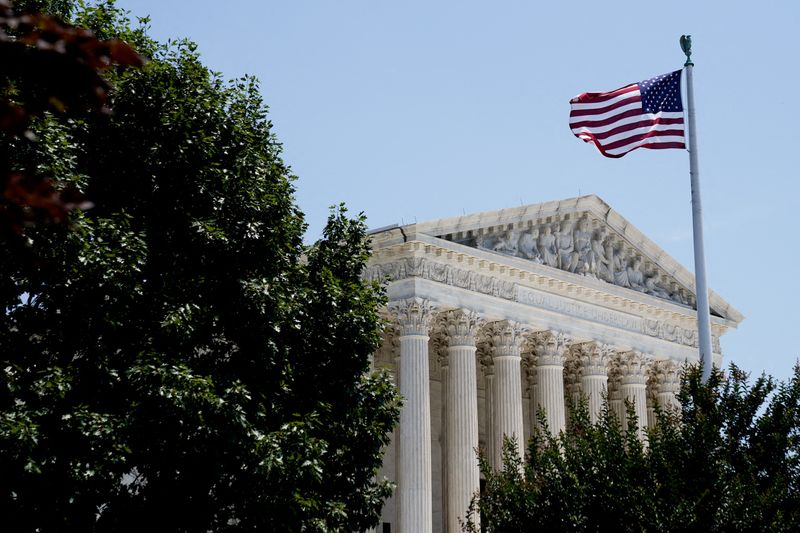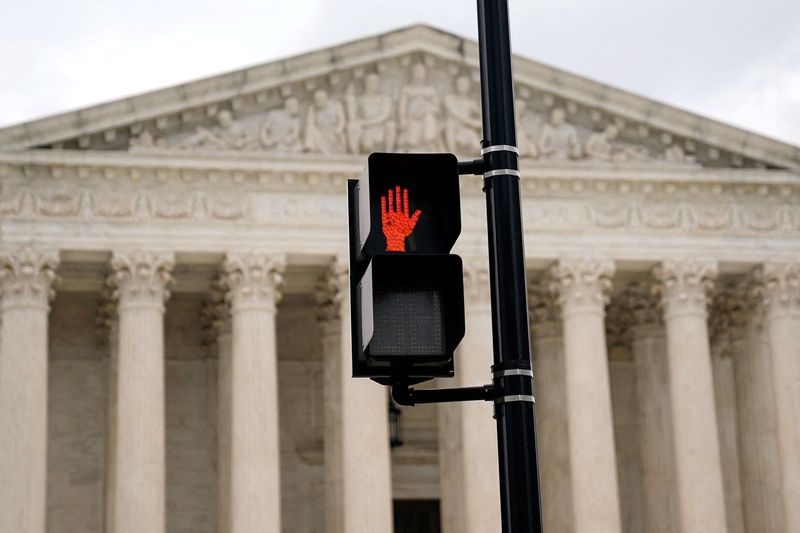By Andrew Chung
WASHINGTON (Reuters) - U.S. Supreme Court justices on Tuesday wrestled over whether Texas death row inmate Rodney Reed was too late in bringing a civil rights lawsuit against state officials who had rejected his requests for DNA testing of crime-scene evidence that he hoped would help exonerate him in his high-profile murder case.
The justices heard arguments in Reed's (NASDAQ:REED) appeal of a lower court's ruling that his August 2019 challenge to the procedures required under Texas law allowing prisoners access to evidence that could undergo post-conviction DNA testing came after the expiration of a two-year statute of limitations.
Prevailing in the civil rights lawsuit could open the door to allowing the DNA testing Reed seeks. Reed has contended that the law, as interpreted by Texas state courts, is fundamentally unfair in violation of the U.S. Constitution's guarantee of due process.
Reed, who is Black, was convicted by an all-white jury of the 1996 murder of a white woman. He has maintained he is innocent and that DNA evidence would help prove it.
The justices during Tuesday's arguments scrutinized Texas Solicitor General Judd Stone's view that Reed should have at least filed suit within two years of an April 2017 state appeals court's ruling against him. Reed's lawyers said the clock should not have started on the statute of limitations until after that appeals court denied his demand for a rehearing six months later, in October 2017.
Conservative Justice Neil Gorsuch asked Stone about the difference between those dates.
"Why should we prefer your view?" Gorsuch asked.
Stone responded, "Rehearing changed nothing about the rights and obligations under Texas law or the U.S. Constitution to Mr. Reed."
Liberal Justice Elena Kagan pushed back, saying: "That's just because rehearing was denied. If rehearing had been granted and the decision had been revised, then it would have changed something."
Reed was convicted in 1998 of murdering Stacey Stites, 19, who was found raped and strangled with her own belt along the side of a road in Bastrop County in 1996. Authorities charged Reed after his sperm was found inside the victim's body. Reed said they had been having an affair.
He sought DNA testing of certain crime scene evidence including the belt used to strange Stites, as the "killer's hands may have left sweat or skin cells" on the items.
Reed's attorneys and activists have worked to exonerate him, arguing that evidence unearthed since his trial points instead to Stites' white fiancé, a local police officer, as the killer.
As various courts over the years ruled against Reed's attempts to have his case re-examined based on what he called newly discovered evidence, Reed garnered public support including from celebrities such as Kim Kardashian and Rihanna. Millions of people have signed an online petition supporting Reed.

A trial court in 2014 denied his bid for DNA testing. The Texas Court of Criminal Appeals also rejected it in April 2017 based on the procedures it determined were required under the state law that gives prisoners a chance to seek post-conviction DNA testing. That court denied a demand for rehearing six months later.
Reed sued in federal court in August 2019. The New Orleans-based 5th U.S. Circuit Court of Appeals last year decided that Reed should have filed suit within two years of the initial 2014 trial court decision.
